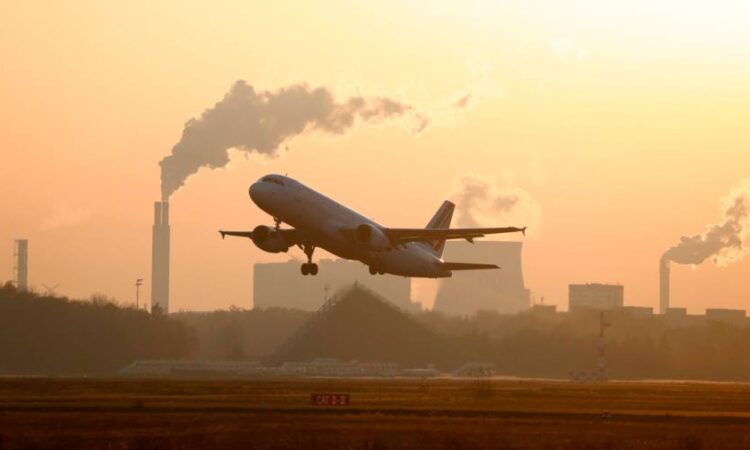
European aviation faces more than €800bn in extra costs to reach net zero emissions by 2050, according to industry estimates that highlight the challenge facing the sector as it decarbonises.
The industry has committed to hitting net zero carbon emissions through a mix of new technologies, notably alternative fuels, as well as carbon offsets and more efficient aircraft, engines and air traffic management.
Reaching net zero would need “considerable additional efforts compared to business as usual”, and would cost €820bn over a 32-year period from 2018 to 2050, according to a report commissioned by airline industry bodies.
By far the biggest expense would be €441bn spent on cleaner fuels, which are not made from fossil fuels but from feedstocks such as animal fat, cooking oil or household waste, the report said.
These “sustainable aviation fuels” can reduce the total emissions from a flight by about 70 per cent, but are more expensive than jet fuel and are only produced in extremely limited quantities.
The report by research groups SEO Amsterdam Economics and the Royal Netherlands Aerospace Centre was commissioned by a group of aviation lobby groups including Airlines for Europe (A4E) and airport trade body ACI Europe.
It warned that aviation companies including airlines and airports would be unable to fund the climate transition alone, partly because the industry has struggled to be consistently profitable in the past.
“Since [profits] are historically low due to high levels of competition and compounded by recent crises, the absorption capacity by the sector, in particular that of European airlines and hubs is expected to be low,” the report said.
The industry has called for significant new support from European policymakers, including classifying newer and more efficient aircraft powered by conventional jet fuel as a green investment under EU rules for sustainable finance, to help attract private capital.
Environmental groups have said this would amount to “a huge act of greenwashing” as it would effectively classify highly polluting planes as sustainable.
“The report illustrates that Europe will need a stable and predictable investment environment and a consistent policy framework to ensure that European aviation can access the necessary capital,” said A4E.
A separate analysis from S&P Global, a rating agency, this month found that planes “currently have no cost-effective alternative to fossil fuels”.
It added that environmental regulations, including EU taxes on carbon emissions, could “incentivise innovation”, but added that investment in low-carbon and no-carbon power sources “is costly and thus risky, especially given the long investment lead times”.






